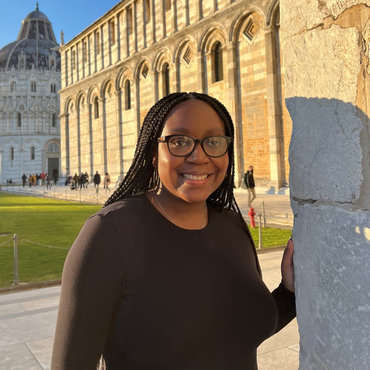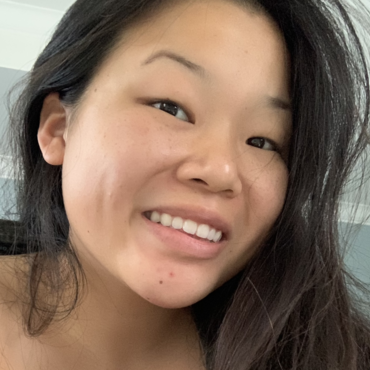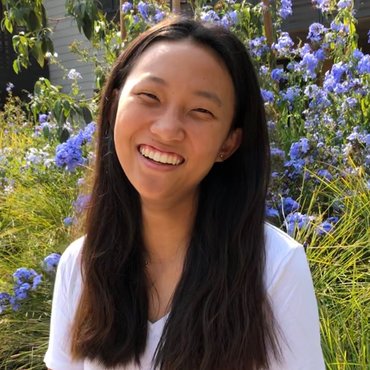
Hannah Zimmerman, '21
A New Yorker Embraces the Urban-Rural Divide
I could never get over the sky in northern Michigan. One day, standing beside a trailer park after interviewing residents of an affordable housing project, I looked up at the sky. It was so blue and beautiful, and the trees that provided shade for the park residents were so full and lush. The trailers' taped-up windows and cigarettes smashed into the ground seemed out of place. I looked back down to fasten the snaps on my red notebook, which contained my handwritten notes from interviews with 15 residents of the trailer park.
This past summer, as a research fellow for Stanford's Anthropology department, I conducted ethnographic field research in Emmet County, Michigan. Emmet County has been unable to adapt to large economic and environmental shifts affecting northern Michigan. There have been massive factory shutdowns: the lumber industry that employed the northern half of the county has been depleted, and thousands of jobs have been lost in the last 15 years. Since 2015, the poverty and crime rates are growing faster than the state average, and 25 percent of the county's young people have left the area. This area was also the part of the state where my grandmother grew up.
Going back was not only a way to explore issues that I had been studying in an anthropology class but to connect with my roots.
In my research, I asked how people in different communities and of different socio-economic groups perceived poverty in Emmet County. This process brought me into lakefront houses and the halls of local government buildings, and—on that day at the trailer park—face-to-face with rural poverty.
Although I had tried adjusting to local customs, the few weeks spent in Emmet County had been a test for me, as I tried to conduct research outside of my comfort zone. As I sat among the trees and going over the interview notes, a man came over and asked if I was okay. I automatically flinched at the sight of his gun, perched in a holster on his belt. Growing up in New York City, carrying a weapon openly is illegal; the only interaction I had with firearms growing up was watching them used as weapons in movies. A few weeks earlier, a shop owner told me that I should just assume people have a gun on them and be surprised when they don't. In both small and big ways, I saw how different my worldview was.
Rural poverty was nothing like the poverty I had observed in my home of New York City or in the other cities where I had worked. Rural poverty was spread out and generational. According to many residents I interviewed, the idea of getting out of poverty didn't seem at all possible. In fact, after cross-checking all 15 interviews, I found that no one who spoke to me thought they could get out of poverty legally. This was a side of America, of poverty, that I couldn't have imagined existed or would have been able to truly understand by reading articles about it written by New York- or Washington, D.C-based news outlets.
As an anthropology major, you're asked to consider your own perspective as well as the perspective of others in order to understand complex issues. The rural fieldwork was challenging but it was a powerful introduction to thinking about issues from both an urban and rural perspective. This is important as I continue to work in national politics, because understanding the rural-urban divide is key to enhancing democracy at varying levels of government.
When I returned to campus this year, my friend and I have continued discussing the urban-rural divide: she, someone from rural Illinois and who worked in Washington D.C, and I, a New Yorker who worked in rural Michigan. Together, we are co-writing a piece about this divide and how we understand each other, and this is challenging us to confront our own biases.


